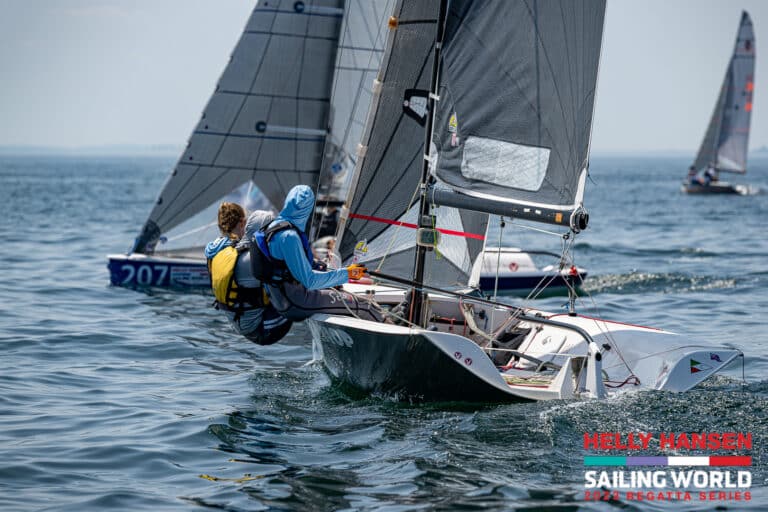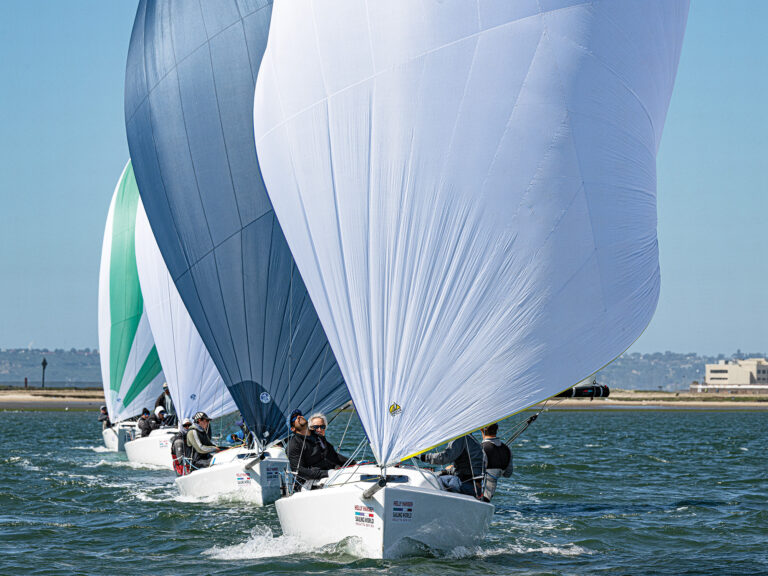
FirstBeatISAF
The most significant topic at this year’s annual International Sailing Federation conference in Helsinki, Finland, was the creation of a world cup of sailing. According to the press releases on ISAF’s website, the council held “lengthy discussions” on Saturday, the final day of the conference. Fortunately, for sailing, the proposal passed.The World Cup will group six of the world’s biggest Olympic-class regattas (Sail Melbourne, Rolex Miami OCR, Princess Sofia Trophy, Semaine Olympique Francaise (aka Hyeres Week), Holland Regatta (formerly SPA Regatta), and Kiel Week) into one grand circuit. In addition to standardizing the scoring, sailing instructions, and some of the branding of each event, the ISAF World Cup circuit should make it easier for mainstream media to cover the sport by clearly indicating which events are the most important in terms of Olympic-class competition. Throughout sports, the term “world cup” has become synonymous with the top of the competition pyramid; it’s only natural that sailing adopts it as well.What is less clear at this time is what sort of incentive will be used to get athletes to hit all six events, or as many as possible. Will there be an overall title, a cash prize at the end of the year? Will the events have a greater impact on ISAF rankings than other Category 1 regattas? Traveling to the four events in Europe is a fairly simple exercise as each occurs in the spring or early summer. However, the 2007 schedule has the Sail Melbourne Regatta taking place Jan. 15 to 20, and the Rolex Miami OCR, Jan. 21 to 27. Obviously it’s near impossible to compete in both events, which somewhat undermines the value of either being part of the circuit.Nonetheless, the World Cup is a good idea and should make it easier for sailors and general sports fans to follow Olympic-class sailing in the years between Olympic Games. For more on the decision, click here.No New Olympic Classes For NowWhile the ISAF World Cup is clearly a step in the right direction, the Council’s decision to defer Submission No. 79 is not. This submission would’ve opened up options for new Olympic classes by deleting Regulation 16.1.6, which is a list of classes ISAF can use for the Olympics and Regional Games. Included on this list are all the Olympic classes, and a host of “classics” like the Sunfish, Fireball, H-boat, J/24, Hobie 16, and Snipe. The reason given for the deferral, according to ISAF, is that deleting the regulation would have “undesirable affects (sic) of (sic) the Regional Games.” While we support the use of classes like the J/24 and the Lightning in events like the Pan Am Games, this regulation stands in the way of sailing embracing modern technology and equipment for Olympic competition. Just three of the 11 current Olympic classes were designed after 1980.As has long been expected, the International Olympic Committee reduced the number of gold medals for sailing in the 2012 Olympics from 11 to 10. This presents an excellent opportunity to shake up and modernize the Olympic regatta. Eliminating 16.1.6 is the first step. That the ISAF Council chose not to take it is discouraging and portends an ugly political fight and an outcome that does little to increase sailing’s appeal to mainstream media, crucial for the sport’s Olympic future.ISAF will choose disciplines for the 2012 Olympics in the United Kingdom at its 2007 conference; the organization will select equipment for those games in 2008.To read the submissions, click here.For Stuart Streuli’s three-part report on Olympic class reform, click here.Other ISAF RulingsThe official minutes of the meeting are not yet available, however, most other submissions were procedural and, whether approved, dismissed, or deferred, are not likely to have a significant impact on the sport at large. There are a few decisions worthy of note:• The Musto Performance Skiff (speaking of modern high-performance craft worthy of the Olympics) and the X-35 keelboat both received ISAF Recognized Status, while the RS:X (the current Olympic sailboard) and the RS Feva were approved as International Classes.• Submission 64 was approved, opening up the possibility of a media-friendly course with a slalom type finish for the Olympic windsurfers. This might stir more interest if there was a legitimate chance of sailing in more than 6 knots of breeze in Qingdao. A windsurfing slalom in sub-planning conditions isn’t any better than a windward/leeward course.• The 2008 Women’s Match Racing Championships will take place in Auckland, New Zealand, while the 2009 Team Racing Champsionships will take place in Perth, Australia.









